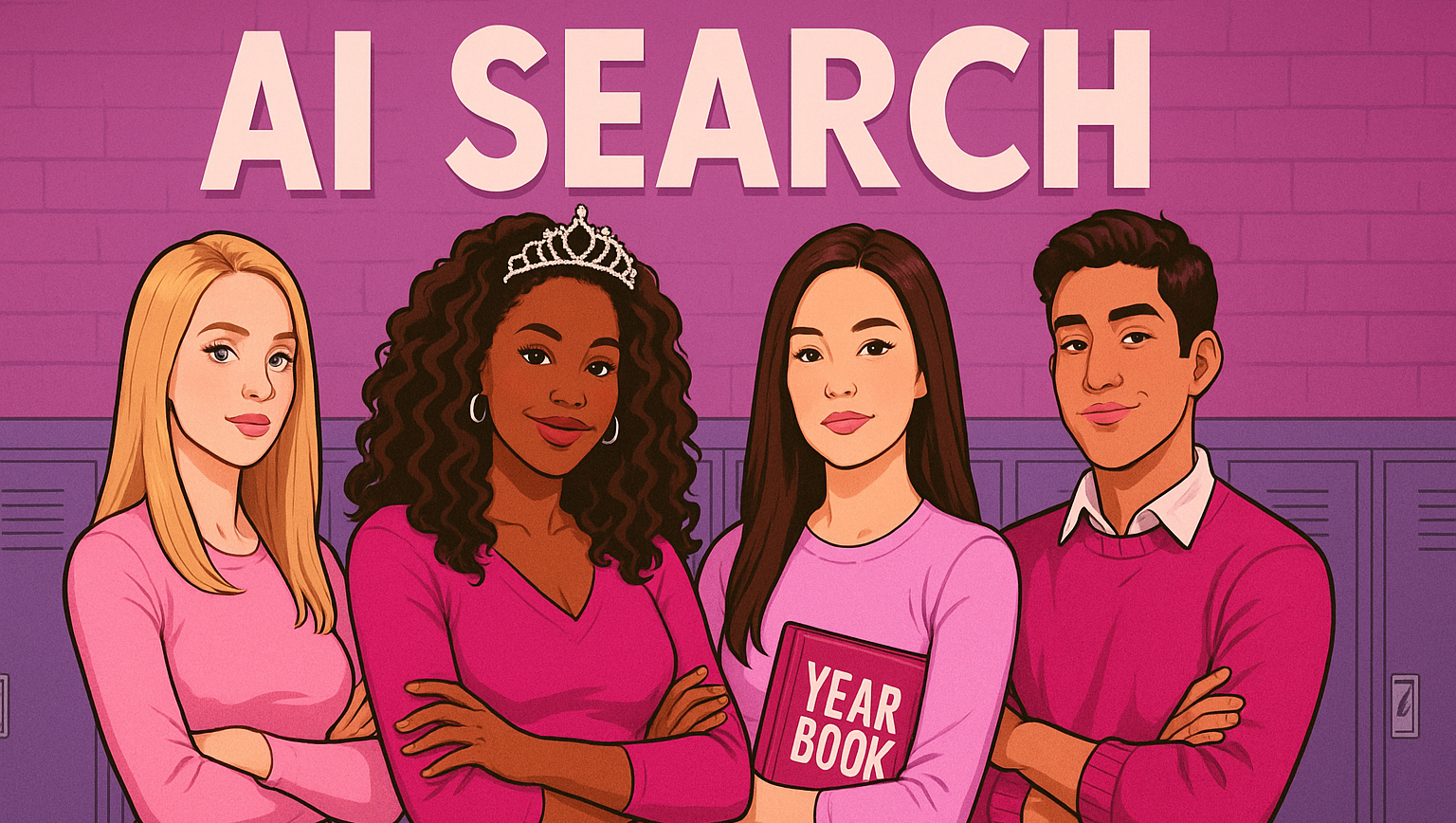You remember the “popular” kids in high school: Everyone knew their names and yearned to be like them. Regardless of how you feel about high school cliques, wouldn’t it be nice for everyone to know the name of your MSP? For years, the way to win the popularity contest online was to rank high in traditional search results. Now, there’s a new kid on the block: AI search. It’s rapidly becoming the way people find answers, and soon, it could rule the school.
The way people seek information is undergoing a dramatic transformation with the increasing use of generative AI tools such as ChatGPT and Gemini. This seismic shift comes with a significant opportunity for your business. By embracing forward-thinking SEO techniques tailored for AI-powered (or generative engine) search, you can position your MSP to be a leading voice in AI-generated results.
The impact of this shift is tangible. Simple SEO Group reports a 100x increase in ChatGPT daily queries. And BigOrange Marketing’s MSP clients get solid marketing-qualified leads (MQLs) that originate from ChatGPT.
Clearly, AI search is an important factor in MSP marketing. In other words, if AI starts wearing pink on Wednesdays, you should consider a wardrobe refresh right now.
Why Traditional SEO Still Matters

Margee Moore
The times are changing with GEO (generative engine optimization), but traditional SEO search is still the MVP. In fact, it’s key to online visibility and essential for success in AI or ChatGPT search.
Keep in mind that AI models are trained on internet content, so high SEO rankings boost your showing in AI searches. It’s a win-win scenario with your SEO efforts paying off double.
Generative AI (GenAI) goes beyond a Google search’s ranked list of resources. GenAI analyzes and synthesizes information from those sources to provide a direct answer, often citing the original sources. Those original sources are where your company’s website could appear.
“The currency of Google search was links,” Rand Fishkin explained on SparkToro. “The way that you ranked in these results was through links, relevant content, smart keyword use, and references to your work from sources the search engines crawled.”
However, large language models (LLMs) do not rank the same way. Rather, the currency of LLMs is “Specifically, words that appear frequently near other words across the training data,” Fishkin said.
4 Ways to Hang with the AI Cool Kids
To increase your visibility in AI-driven search, focus on these key strategies:
- Embrace Conversational Language: SEO optimization is important, but prioritize content that blends natural, conversational language with SEO keywords. Try to mirror the way AI communicates.
- Produce High-quality, Authoritative Content: Think about the specific questions your target audience often asks or research the questions using a tool like Answer the Public. Now, focus on writing content that answers the questions in a thorough way, such as within the first couple of paragraphs. ChatGPT, Gemini, and others are looking for clear answers to common questions in your industry. Your expert and informative content can take the form of blogs, case studies, or other web pages. Make it educational, free from unnecessary jargon, and laser-focused on user needs.
- Optimize Your Website’s Structured Data: Here’s where the “computer nerds” get their revenge. To understand and categorize your website’s content, AI relies heavily on structured data (schema markups). Appease the AI gods by making sure your key pages — like service pages, FAQs, and blog posts — have properly implemented schema. Avoid JavaScript, which many AI crawlers don’t handle well, in favor of clean HTML. Follow the basics of metadata, crawlability, and site speed. Weigh the pros and cons of newer recommendations you may hear about, like llms.txt files. They may not always be the right approach for your site. Keep in mind that everyone is still figuring out this new landscape.
- Cultivate a Strong Media Presence and Credible Backlinks: If you want your name to be on everyone’s lips, you need to do what the popular kids do: Play up your image. Mentions in authoritative media outlets, collaborations with reputable organizations, glowing reviews, and testimonials build trust and authority in your MSP. AI tools consider factors like online reviews when responding to queries such as “What’s the best MSP in Indianapolis?”
The Real MQLs of ChatGPT
Success in AI-powered search can deliver tangible benefits for promoting managed service provider (MSP) offerings. In fact, several organizations have reported receiving marketing-qualified leads (MQLs) directly from AI chat platforms.
If you want in on the action, now’s the time for you to take a long look at your website’s content.
- Is it making the grade or flunking out?
- Do you rank high for keywords tied to the services you offer?
- Does your content clearly and concisely answer questions your potential customers are asking?
Get a sense of what AI thinks about your website on Andisearch.com. Type your URL into the “Ask Andi” search bar, then, click the “Summarize Results” button in the response.
Straighten up the back end of your site with the right schema markup and allow AI crawlers.
For extra credit, assess your online footprint:
- Have you claimed your Google Business Profile?
- Do you actively ask for Google reviews?
- Is your company page on LinkedIn as lively as a pep rally or is it a snooze fest?
Final Thoughts
Remember, SEO is a long game. Master it now and your MSP will remain at the top of the class, even as AI search becomes the new standard.. It’s worth your time to study these best practices so you can put your MSP at the head of the class.
Margee Moore is CEO of BigOrange Marketing, an agency on a mission to help MSPs get leads and grow.
Featured image: DALL-E











